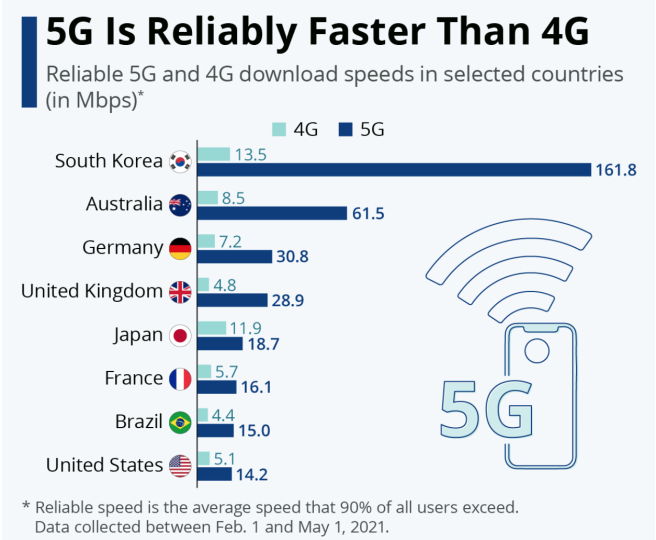In the face of ever-increasing mobile adoption and reliance, 5G is a technology that promises to empower us in previously unimagined ways. It will connect billions of devices and infrastructure to create an unparalleled digital experience, but it won’t happen overnight. The massive infrastructure will require billions of dollars in investments as well as new technologies that we’re just now starting to tackle, such as self-driving cars and drones.
But many companies are already actively working on these technologies, so they can be ready for the 5G revolution when it arrives — which is why some major carriers have added smartphone financing programs that allow users to pay back their devices over a certain period of time with interest.
When you’re done with your smartphone, you can launch the carrier’s financing website and find a plan that fits your budget and usage. And in addition to the standard option, there are now smart lease programs that allow you to pay upfront or over time. But while this approach has a lot of benefits, it still doesn’t solve one major problem: people aren’t upgrading their phones enough.
The average smartphone user in the U.S. has had a smartphone for nearly five years, according to data from Cisco and the Gartner Group. The 5G vision is of a world where people never stop using their devices, so the fact that we’re willing to hold onto our phones for so long is a major hurdle when it comes to building out 5G networks.
There are a couple of reasons this may be happening, but one big reason has to do with financing. For one thing, if you have less money upfront, it means you’re less likely to buy a new phone, but that’s not all. When carriers first introduced smartphone financing, they required customers to pay a minimum monthly fee of around $30 and a large deductible on the device.
Today, major carriers have lowered the minimum monthly fee and dropped the device’s deductible. They’ve even phased out their in-house financing operations and moved them onto third-party platforms. There are now even so-called guarantee plans that come with zero down and no credit check — which means hundreds of thousands of users can afford to buy new phones without harming their credit score, allowing 5G adoption to reach its potential.
What does this mean for 5G?
The 5th generation of mobile will use a series of antennas and antennas devices to send data at speeds that are up to 100 times faster than current networks. However, the 5G devices and vision is much bigger — it envisions smarter cities that connect cars, medical devices, and other infrastructure to create a hyper-connected world. And whether it’s self-driving cars or smart homes that are controlled by your voice or hand gestures, these technologies will require an incredible amount of processing power and speed.
Smartphones will continue to be the central hub for humanity’s interactions with the Internet, and they’ll have to keep evolving to keep up with people’s needs. Yes, 5G will bring with it a new level of connectivity, but it might not be exactly what you’re expecting. Traditional smartphones may give way to smarter devices that can do much more than just make calls and check your email — but their basic functionality will remain the same.
The future of smartphones is connected and intelligent
The internet has taken over our lives in a way that few could’ve predicted when it was first introduced. The advent of the World Wide Web — which arrived on October 29th, 1989 — forever changed how we live our lives and think about ourselves as individuals. Today, we can work remotely, message friends and pay bills all from the palm of our hand because of our smartphones. The mobile revolution has led to an unprecedented level of connectivity that’s changed our society in countless ways.
Unfortunately, this also means that the average American smartphone owner will hold onto a phone for about 3.4 years before upgrading — which is about 6 months longer than it was two years ago. While some may see this as a bad thing, there are companies that are trying to change the way society thinks about their smartphone’s lifecycle by changing how we pay for them.
These new financing programs have become mainstream, and they’ve already changed the way people buy smartphones. Carriers like T-Mobile are offering zero-down contracts and monthly payment plans in an effort to make the process of buying a new phone easier for consumers. More than just an incentive to buy a new phone, these programs are truly changing the way we think about our electronic devices.

